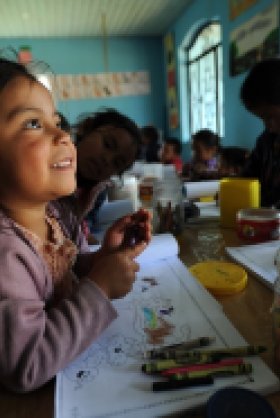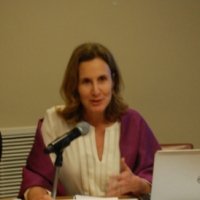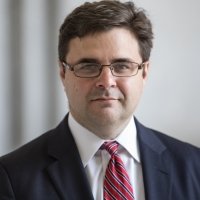US Foreign Aid to the Northern Triangle 2014–2019: Promoting Success by Learning from the Past (No. 42)



The Northern Triangle countries of El Salvador, Guatemala, and Honduras share profound cultural, political, and economic ties with the United States. Increased immigration from the Northern Triangle over the past several years underscores these linkages, while exposing deep-seated issues of poverty and violence in the region. In a new report published by the Latin American Program, US Foreign Aid to the Northern Triangle 2014-2019: Promoting Success by Learning from the Past, authors Jeff Ernst, Kelly Josh, Eric. L Olson, Kristen Sample, and Ricardo Zúñiga examine expanded U.S. aid to the region since 2014 and outline evidence for effective aid frameworks in the years to come.
Incorporating insights from current and former U.S. officials, development practitioners, and key experts and actors in the Northern Triangle, the report reviews the successes and shortcomings of U.S. foreign aid. Amid current and future challenges of insecurity, poverty, and climate change, resistance by powerful local actors to anticorruption and governance reforms is a significant obstacle to economic growth and social progress in the region. Although aid is critical, the authors argue, “US political influence in support of reforms and reformers is even more important.”
Progress in the Northern Triangle, the authors note, has significant implications for the U.S.: “Despite its diminutive size and relatively small population, Central America has played an outsized role in the United States’ relations with the hemisphere and the world.” While recognizing the complexity of the region’s problems and the limits of foreign aid, the authors contend that the U.S. and other donors to the Northern Triangle should prioritize improved democratic governance and anticorruption efforts. Ultimately, the report aims to advance productive dialogue among policymakers and stakeholders shaping U.S. assistance to the region.






The Wilson Center’s prestigious Latin America Program provides non-partisan expertise to a broad community of decision makers in the United States and Latin America on critical policy issues facing the Hemisphere. The Program provides insightful and actionable research for policymakers, private sector leaders, journalists, and public intellectuals in the United States and Latin America. To bridge the gap between scholarship and policy action, it fosters new inquiry, sponsors high-level public and private meetings among multiple stakeholders, and explores policy options to improve outcomes for citizens throughout the Americas. Drawing on the Wilson Center’s strength as the nation’s key non-partisan policy forum, the Program serves as a trusted source of analysis and a vital point of contact between the worlds of scholarship and action. Read more


